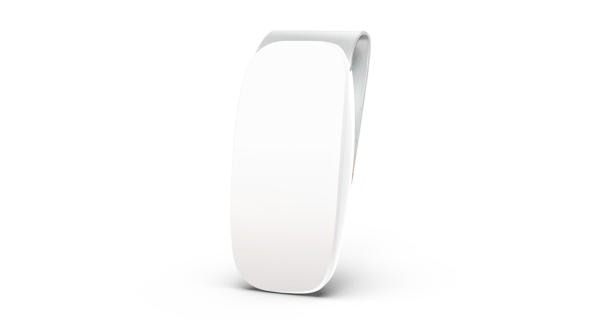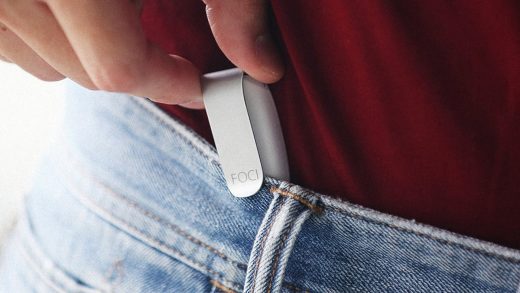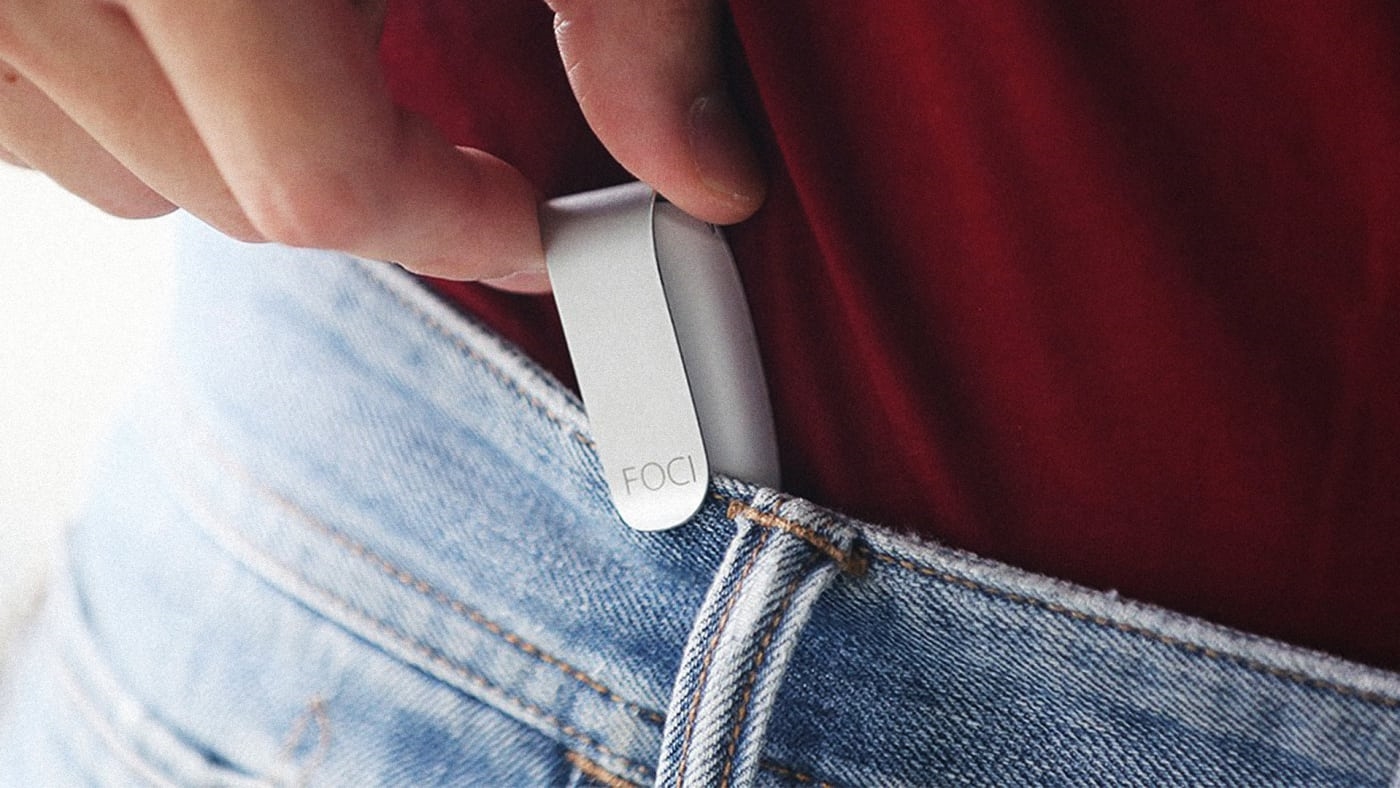Can this wearable remind you to not get distracted?
When it’s clipped to your waist, this small device tracks each breath you take, and then uses machine learning–and insights based on two decades of neuroscience research–to analyze what your breathing patterns say about your mental state. On an app, colored bubbles indicate whether you’re focused, distracted, stressed, or in a state of flow or peak performance, and then a set of tools help you train to stay focused longer.
“It’s something that [knows] exactly when you are distracted and increases awareness in you,” says Mick Adams, a co-founder of Tinylogics, the startup that made the new tool, called Foci. The product launched on Kickstarter today. “Then, with fast intervention, you can stop this distraction cycle immediately.”

Adams started trying to find solutions for distraction as a student at Cambridge University, and experimented with various psychological techniques to try to help himself focus and work better. “It wasn’t really enough, because the real problem I found was that I was getting addicted to technology,” he says. “This is the larger problem–everyone is constantly connected, everyone’s talking about this, and there aren’t many solutions.”
For many people, unplugging isn’t an option. The new tool, which Adams developed with a team of co-founders who met at Cambridge, assumes that distractions won’t go away, but attempts to train people to better deal with them. It’s based on well-established research on the links between breathing and cognition. When a person is extremely focused, their breathing becomes very uniform and slightly faster than usual. In a lab, Adams says, it’s fairly easy to measure how focused someone is by tracking their breathing.
That’s challenging to do accurately outside of a lab, but the new device uses machine learning to deal with noise in real-world tests and to personalize its analysis.
Within four hours, it trains itself to establish someone’s individual baseline, and then it can tell if they’re focused, how long they’ve been focused, and how deep that focus is. The connected smartphone app shows a series of orbs that change color as someone’s mental state changes and then provides other feedback.
In alpha tests with students at Cambridge, testers often left the app open on their phones to follow the visualization. “You don’t necessarily know when you’re getting distracted, and when you’re focused,” says Adams. “It’s a subconscious feeling. We’re trying to help people understand their subconscious through this visualization.”
Along with the visualization, the app gives notifications about how long someone has been in a particular state of mind–whether focused, stressed, or something else–and compares performance to previous days to push someone to gradually stretch to longer periods of concentration. “We’re basically trying to give people benchmarks and goals for how much time they should be spending in focus and kind of nudge them at the periphery of their awareness into better focus, which we’ve been finding has been working in the testing,” he says. (Sending a notification to let someone know they’re focused would seem to be counterintuitive, but the company says their testers are finding it helpful).
The app also suggests mental strategies for better focus that have been proven in research, and can help change habits. If your automatic response to being tired is to go on social media, for example, you can enter that in the app, which will then suggest the next time that you notice that pattern and think of an alternative response. The mental strategies work well, Adams says, but people don’t commonly use them, or might try them once and then forget to maintain the practice.
Another part of the app shows how someone’s mental state changes throughout the day. If there are patterns, someone might adjust their daily schedule in response. “If you’re very distracted at a particular time, you could do more menial tasks, things that don’t involve too much concentration,” he says. As the data is plotted over time, the app also gives feedback about how your concentration compares to previous days, giving users incentive to keep improving.
The device also gives physical reminders through vibration. “Before I find myself going on a part of the internet that I shouldn’t during work or I’m thinking about something else, I get three vibrations from Foci, which lets me know that I’m distracted,” Adams says. “That means that I get to cut the cycle before I waste all that time.” (The device doesn’t if you’re watching YouTube or reading Twitter, just that you’re distracted.)
“It’s not really about productivity, it’s more about how I feel about my self-control,” he says. “This is the really fiendish thing about technology–not that’s it’s wasting work hours. It’s about removing your autonomy. That’s the thing that we’re trying to give people back.”
The Kickstarter campaign is raising funds to scale up production of the devices and to gather feedback from a larger base of users. For early backers, the product costs $49.
(35)



